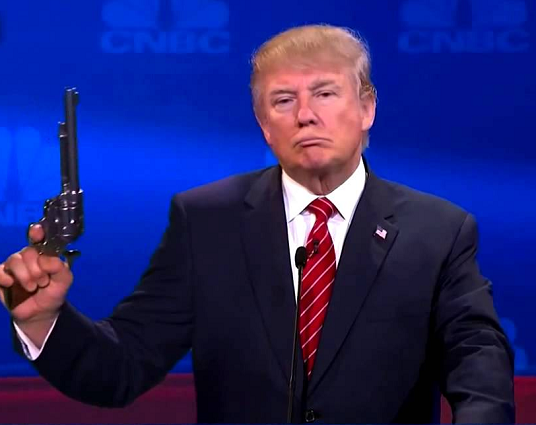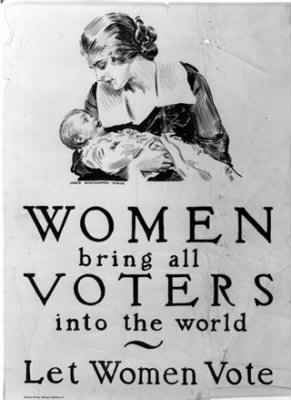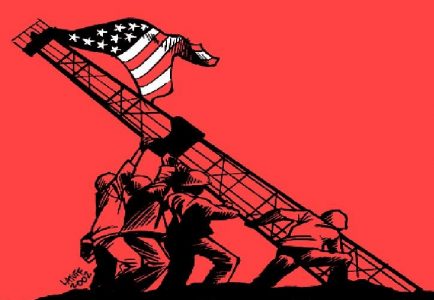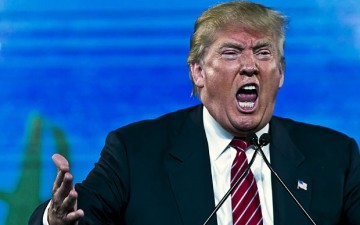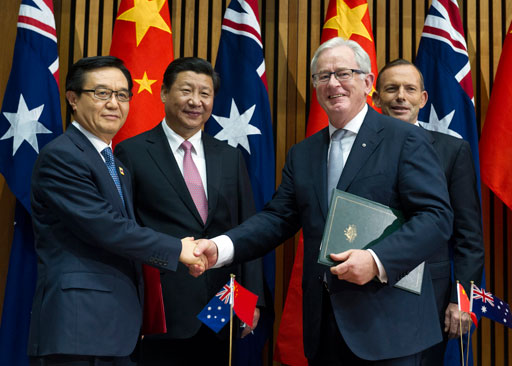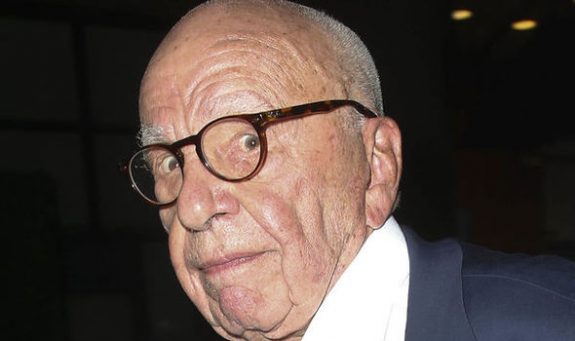Australia might be saving our democracy. Can the UK and US?
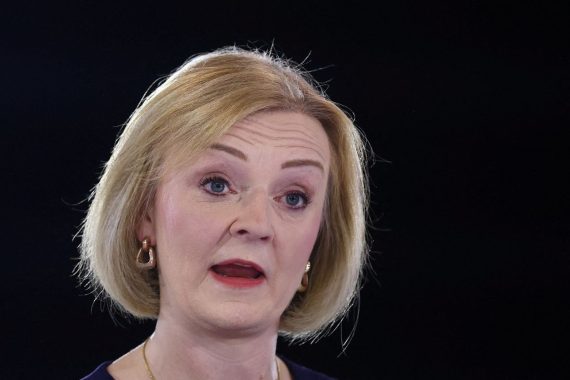
Almost precisely a year ago, John Menadue’s Pearls and Irritations published an essay by this author entitled, “Think tanks have put British democracy at risk.” It was part of a trio of essays that explored the concept of “competitive authoritarianism” in Australia, the UK and the US.
Competitive authoritarianism is a most useful term to help understand how nations that consider themselves democratically governed can become illiberal or even authoritarian in nature. It was devised by two academics, Levitsky and Way in 2002. They described nations where the competitive process in elections still takes place. There is still the prospect of the incumbent losing. The scales, however, become by fits and starts almost insuperably weighted in the incumbent’s favour.
The academics use the analogy of a sporting field firmly tilted towards one side’s goal, with the referees working for the empowered team. The misuse of government money and partisan appointments are compounded by disinformation with a partisan media amplifying the government’s propaganda.
Lies, rorts and partisan appointments overwhelming statutory bodies are all familiar to Australians. The May election marked us as lucky. In part, our electorate is becoming increasingly jaded about the pro-government messaging of corporate media (and the battered national broadcaster). More protective still, however, is the strong system that operates our democracy. Ranked choice voting, compulsory preferential voting and an independent electoral commission are all factors that helped us pause the democratic decay, allowing us time to re-evaluate.
This week, Attorney-General Mark Dreyfus introduced his integrity body, the National Anti-Corruption Commission (NACC). While the model has one substantial flaw, it is incomparably better than the previous government’s bogus version. More importantly, the AG’s office plans this body to be part of an integrity framework that addresses a number of the issues that put our democracy in such danger of decaying towards illiberalism. There are many forces that make this project difficult, not least pressures such as the one that had the limitation of “exceptional circumstances” crippling the ability to stage public hearings inserted into the NACC at the last minute.
As Australians saw in the AAT, cynical governments have the capacity to pervert bodies intended to act in a disinterested fashion. This fate could beset the NACC in future governments not committed to the democratic contest. The current design allows the government to appoint the NACC’s commissioner as well as to control the balance of power in the parliamentary committee that supervises it. While the post-democracy party is in opposition, that is a useful protection. When the post-democracy party takes office, it becomes risky. The government committee controls the body’s budget too, and in this way can limit the function of the commission, just as they tried to cripple the Auditor-General.
Both our powerful friends in the anglosphere are in considerably more urgent danger. Joe Biden’s Democrats face a crucial midterm election in a few weeks that might, if all the dice roll in their favour, enable them to take the steps to protect the USA from becoming a Christian Nationalist illiberal nation. Authoritarianism looms.
The first two years of Biden’s term have been crippled by only nominally holding the balance of power in the Senate. Technically Kamala Harris’s vote should break ties in the Democrat’s favour. Functionally two senators, Joe Manchin and Kyrsten Sinema, have been playing for the Republican team, scuppering attempts to reform and protect their flawed democracy, hanging on by threads.
The hope is that Republican overreach in overturning Roe v Wade in the Supreme Court, with more threats of reactionary social oppression to come, might stimulate enough voter interest to overwhelm all the structural disadvantages faced by the Democrats. The results will be watched with bated breath.
Disastrous plunges in the British pound this week have signalled the crash and burn intent of dedicated ultra-free market Prime Minister Liz Truss and her academic economist Chancellor, Kwasi Kwarteng. The 2021 essay’s list of competitive authoritarian features in the UK government has become more extensive since then. Now, ultra libertarian ideologues have gone further than even their thinktank provocateurs observe is wise.
The crashing of the economy is not an accident. It is intentional and part of the extended plan should the government survive long enough to implement it. Cutting tax for the rich and robbing the government of the money it needs to function is part of killing statism. If there is no money to spend, the government must be shaved back to bloodied bones.
Brexit was born of the misery and anger forged from austerity measures that followed the 2008 global crash. Brexit has, in turn, compounded the economic misery of the British, augmented by Russia’s invasion of Ukraine and the pandemic. The idea that the Conservative government should crash the economy to restructure it based on more austerity appears foolhardy.
The whispered corollary for many ultra-free market spruikers is that the masses must suffer. The supply side or trickle-down economics being practiced by Truss and Kwarteng has long been established to be a farce based on faulty – or motivated – reasoning. It is clear that the more free market policies implemented, the more the UK, US and Australia have seen inequality mount with the rich and the masses divided by a chasm of social immobility.
This British experiment will show whether ultra free market ideology looks closer to fascism in practice. Surveillance and suppression of the suffering masses, as government cuts services, looks likely to be the result. Priti Patel’s time in the Home Office crushing the right to protest will become invaluable.
Truss is, as the 2021 essay forecast, entirely immersed in the world and personnel of the billionaires’ ultra free market lobby groups masquerading as thinktanks. Her Chancellor is an ideologue and true believer in the message. The “thinktanks” face the moment of testing: who was the liberty for that they championed? Only the Ultra High Net Worth class and their High Net Worth enablers?
Both the UK and the US stand on the brink of something unthinkable a decade ago. Australians must fight to ensure that our radicalised right (and the “thinktanks” that foster the internationally-networked radicalisation) don’t take us back down that path. We have a chance to rebalance the playing field. Will our right resume playing the game as a contest, or continue to try to trash the field?
Like what we do at The AIMN?
You’ll like it even more knowing that your donation will help us to keep up the good fight.
Chuck in a few bucks and see just how far it goes!
Your contribution to help with the running costs of this site will be gratefully accepted.
You can donate through PayPal or credit card via the button below, or donate via bank transfer: BSB: 062500; A/c no: 10495969

















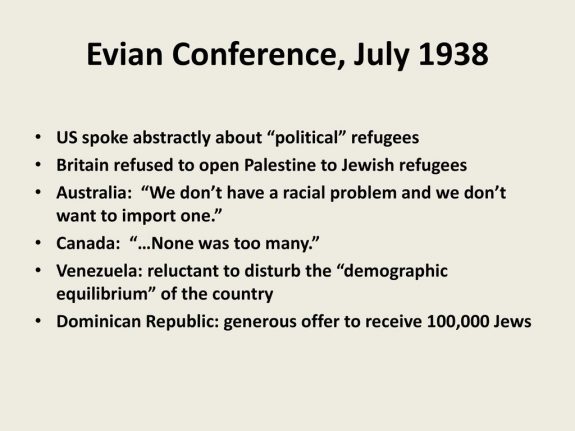
 Dr. Venturino Giorgio Venturini devoted some seventy years to study, practice, teach, write and administer law at different places in four continents. He may be reached at
Dr. Venturino Giorgio Venturini devoted some seventy years to study, practice, teach, write and administer law at different places in four continents. He may be reached at 
